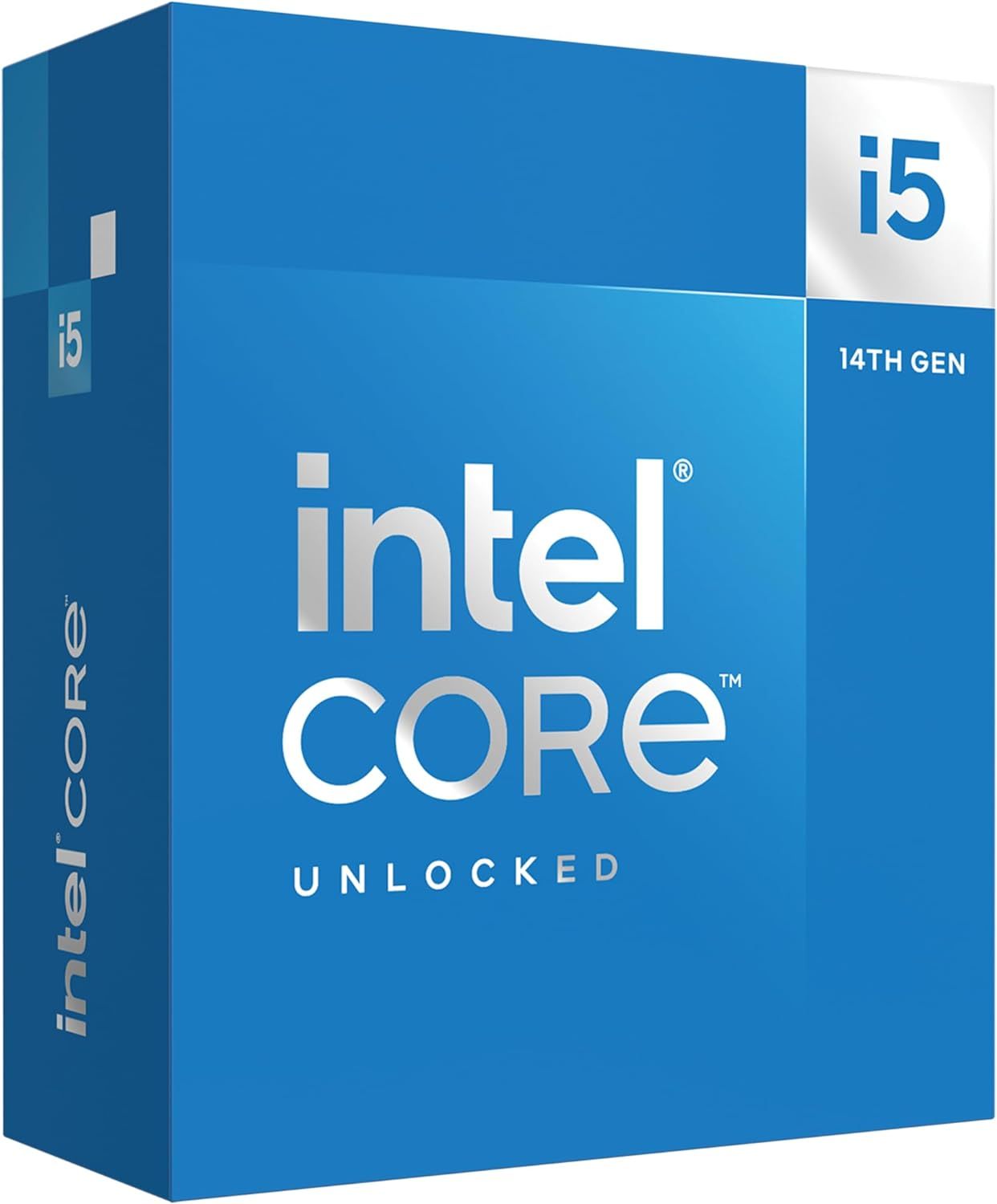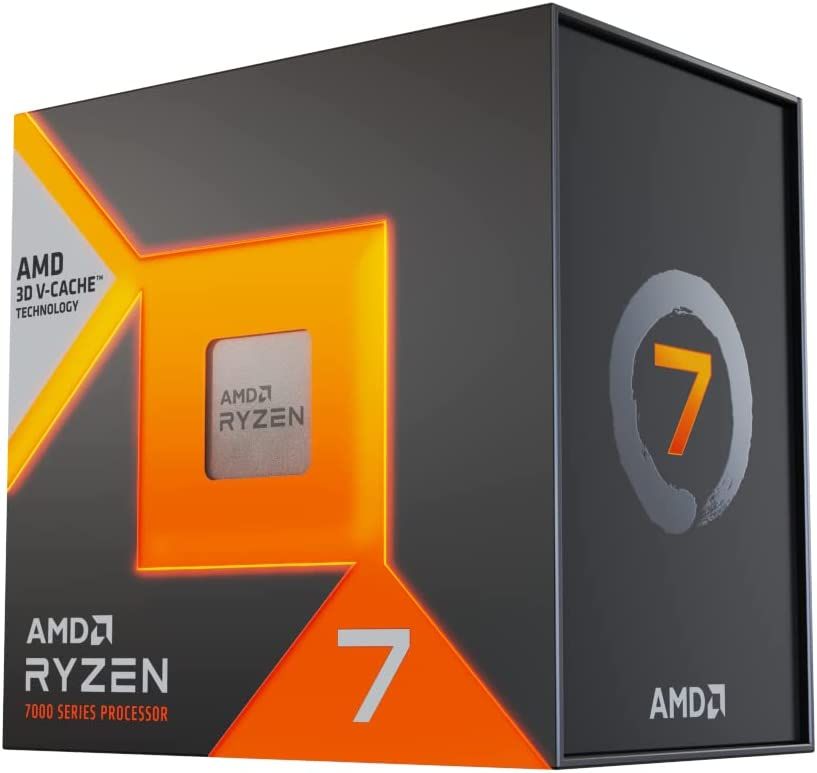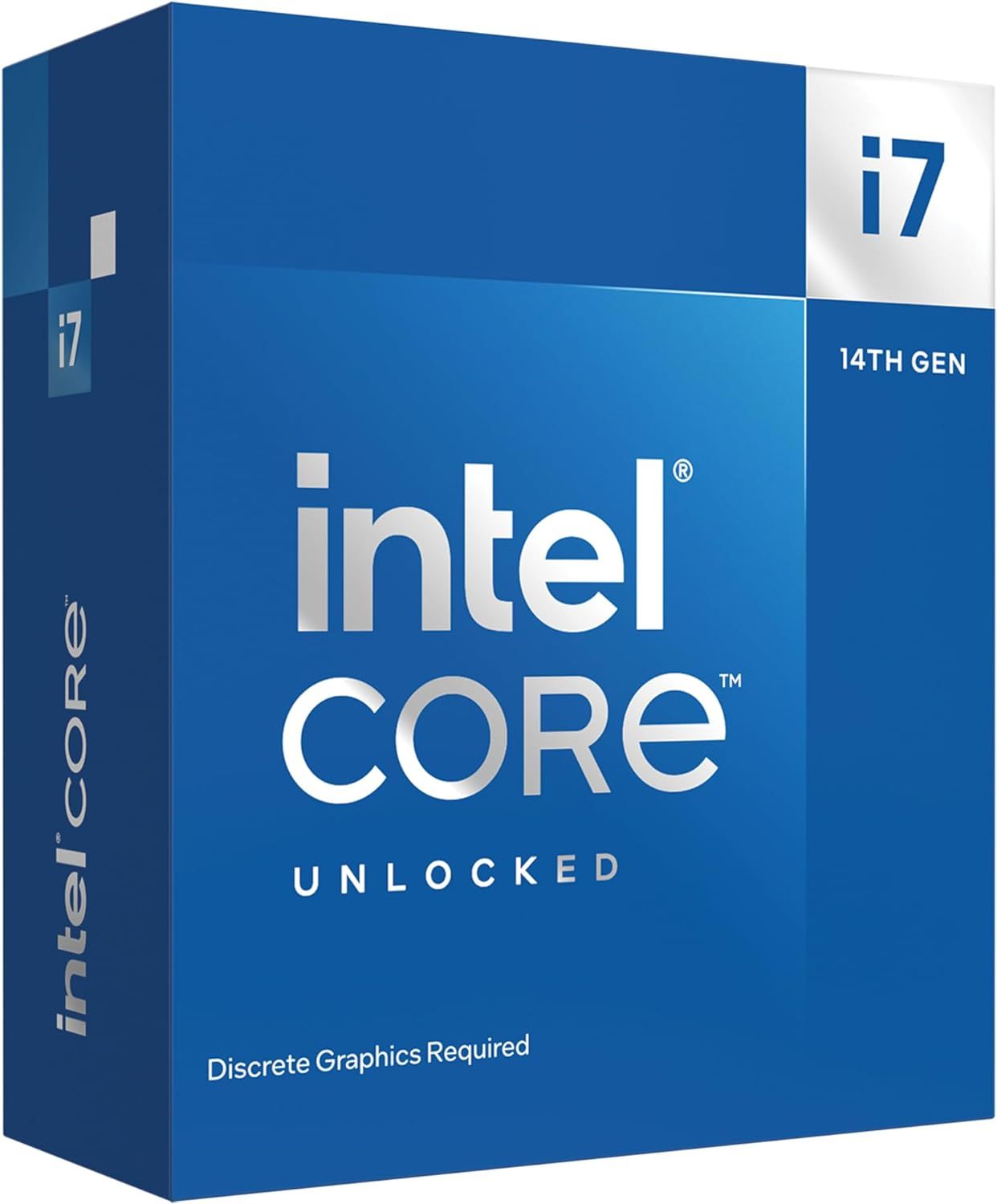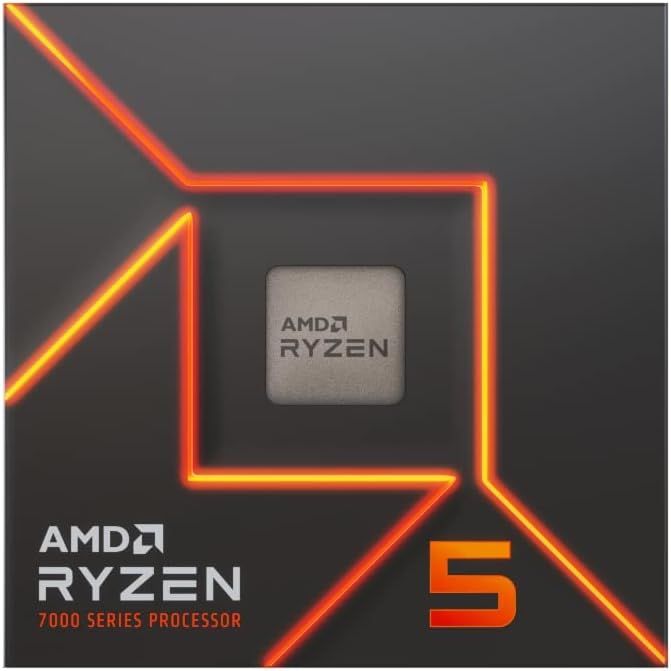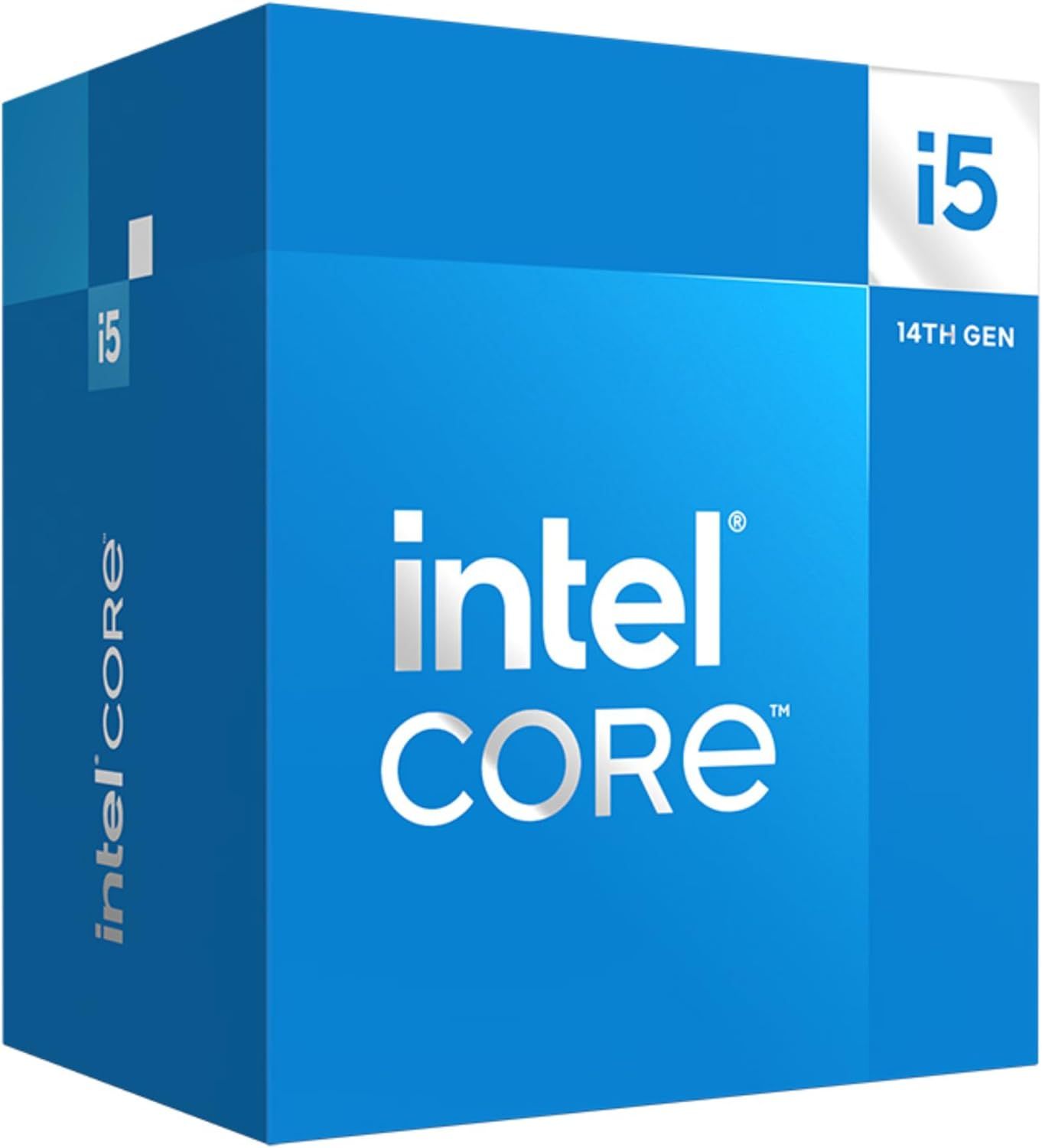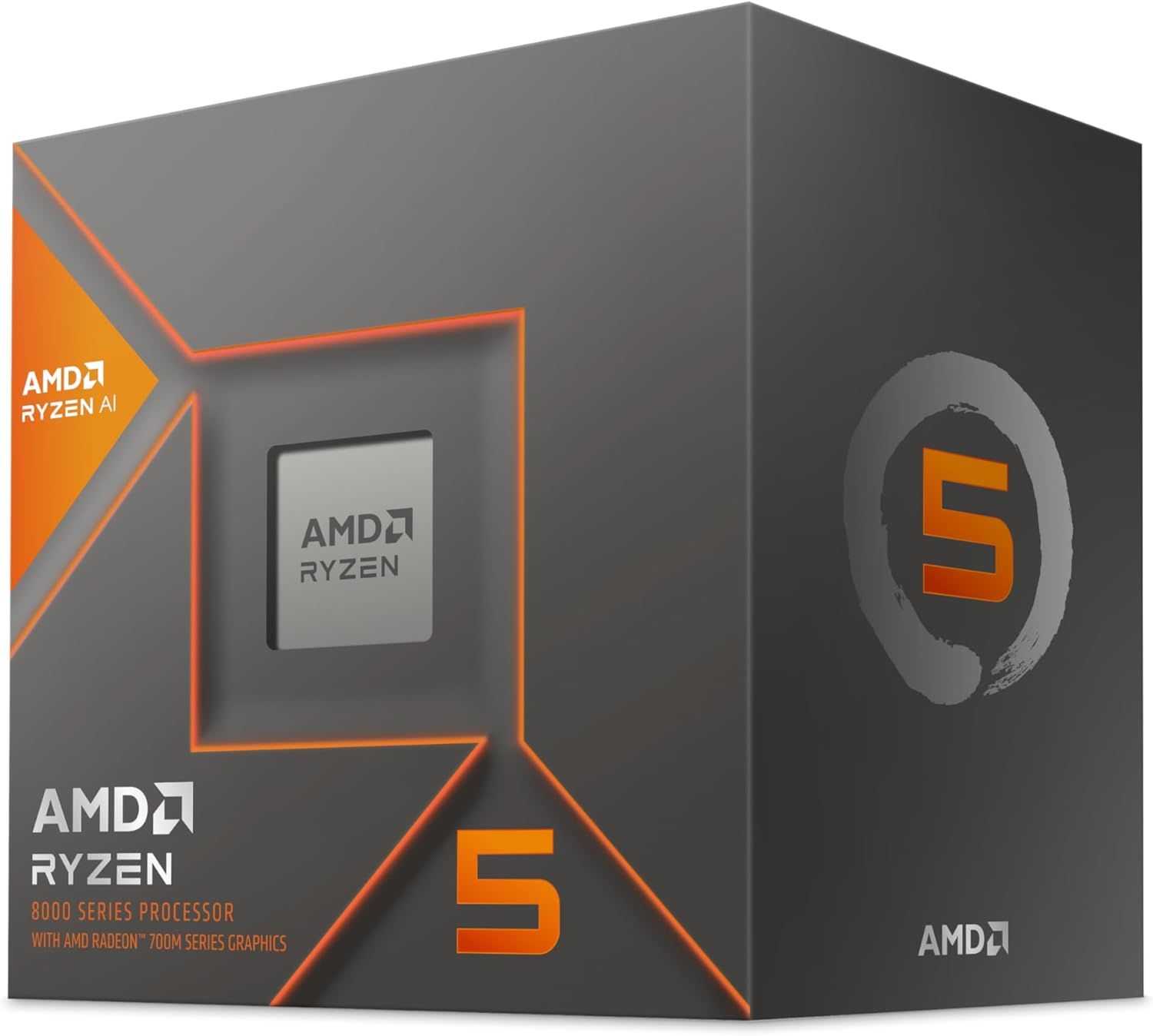Finding the perfect new budget CPU is a challenging proposition to get right. Ideally, users want a CPU that matches their performance needs and budget constraints, while getting the best value for money without compromising key features and performance.
Thankfully, modern CPUs have come a long way in the last few years, and multiple cores no longer cost the arm and leg they used to just a few years ago. The Intel 12th, 13th, and 14th-gen along with AMD's, last-gen 5000 series, and current-gen 7000 series CPUs (including the X3D refresh), and the newer 8000 Series APUs offer multiple options suitable for productivity and gaming benchmarks.
As competition between both players in the desktop CPU market has intensified, we have seen ever-increasingly value emerge at the price-sensitive entry and mid-level CPU offerings, and their target consumer base is the primary beneficiary of a much more competitive and value-added segment emerging.

Intel vs. AMD: Which CPUs are better?
Trying to choose between an Intel or AMD CPU? Here's our comparison of how they break down against each other!
The team at GameZXC has curated some of the best offerings to help users pick out CPUs and APUs that suit their budget and performance goals.

The Best CPUs in 2024
Intel, AMD, and now even ARM CPU's are competing for the best CPU spot on the mark. How you work and what your budget is will determine this decision.
Game ZXC's Picks for the Best Budget CPUs in 2024
Users looking for an all-arounder when it comes to finding the best budget CPU that can handle both gaming and productivity do not need to look further than the Intel Core i5 14600K 14-Core, 20-Thread CPU. It offers an unlocked CPU that comprises 6 performance cores and 8 efficient cores as it leverages the refreshed Raptor Lake architecture with a higher boost clock on offer to delivery superior performance within the same price bracket as the 13600K which it replaces across the board.
It runs on the same 12th and 13th-generation motherboards powered by Intel's 6XX and 7XX chipsets respectively, with a BIOS update required for earlier models even as refreshed 14th-generation offerings in 2024 already have the requisite firmware to detect Intel's value-centric unlocked CPU out of the box.
While it does offer excellent value for money and strong single and multicore performance, something that made its predecessor such an excellent candidate last year, it does come at the cost of a relatively high power draw and thermals making it somewhat demanding in terms of power and cooling out of the box.
The AMD Ryzen 7 7800X3D, our pick for the best budget gaming SPU is an 8-core, 16-thread CPU that focuses entirely on gaming as its forte and it does so exceedingly well, beating much more expensive and core-heavy AMD and Intel options with ease. To do so, it leverages its octa-core Zen 4 configuration with a larger stacked L3 cache fused onto the chip that allows it to perform significantly better than the competition in games in particular.
As a result, it offers a significantly more efficient alternative that clocks in just under a reported power draw of 50W across multiple games making it a cost-effective option for gamers in the long run. It also is less dependent on faster RAM configurations than its non-X3D alternatives thanks to its larger cache allowing it to handle larger data chunks faster than AMD's other gaming CPUs even as its raw compute power for productivity falls slightly short of the cheaper Ryzen 7 7700X due to lower clocks in play.
All in all, the Ryzen 7 7800X3D is a budget CPU for gaming that looks pricey versus the competition. But when you consider the price per core, It more than makes up for it by leveraging its cache advantage to offer gaming prowess that the competition can not currently match, even in 2024.

The Best Gaming CPUs in 2024
The best CPUs for gaming have to stand out in an increasingly competitive space. These are the best you can buy right now.
For users needing the best performance budget CPU, the Intel Core i7 14700K/KF 20-Core, 28-Thread CPU delivers excellent value for money as the only unlocked 14th generation CPU that saw its core count increase at launch.
The 14700KF sees an increase of 4 efficient cores, delivering 4 more threads as it moves closer to a Core i9 CPU in terms of core and thread count than either of its 2 previous generation offerings. It also sees an increase in boost clocks for both its performance and efficient cores by 200 MHz and 100 MHz respectively, and can leverage Intel's APO optimizations in a variety of titles to deliver superior performance without needing any 3rd party tools.
As an option that works with both DDR4 and DDR5 RAM and one that works with existing LGA 1700 motherboards from Intel, it might be a more economical choice to upgrade to entry-level or mid-range Intel 12th and 13th generation CPUs than its competition, but users must also factor in its higher power draw in productivity use cases and the need for a high-end cooler to keep its performance up to spec, both of which can creep up as hidden costs for what is otherwise a very capable CPU in 2024.
For users looking for a budget-conscious AMD CPU, the 6-core, 12-thread Ryzen 5 7600 delivers an unlocked CPU with a thermal solution as part of its offering, making for a cheap but fast option for gamers and productivity users with plenty of upgrade options down the road.
It offers much better efficiency than the competition even as it can be pushed higher by tweakers and enthusiasts to near-7600X performance with ease though users would be well-advised to invest in a better cooler if they chose to go that route. It delivers excellent gaming performance as a result of its newer Zen 4 cores. It leverages its integrated graphics to offer users who do not need a discrete option currently the ability to save some money for an upgrade down the road.
AMD's hexacore CPU does have limited use cases in more demanding multithreaded workloads versus Intel's beefier Core i5 options that leverage their BIG.little architecture to deliver a higher thread and core count, however. While the hexacore CPU can not hold its own versus the more expensive Core i5 14500 below in productivity benchmarks, its superior efficiency, better thermals and better gaming performance more than tip the scales in many comparisions.
Our pick for the best budget CPU for productivity is the 14-core, 20-thread Intel Core i5 14500, an unapologetic locked SKU take of the unlocked 14600K CPU from Intel. It leverages its higher core count and thread count to make for a potent productivity CPU that ships with its thermal solution as part of the package.
Much like other 14th-generation Intel CPUs, it retains compatibility with older LGA 1700 motherboard offerings and both, DDR4 and DDR5 memory out of the box, but does have capped gaming performance given the limited boost clocks it offers, making it a necessary middle child between the 14400F and the 14600K/KF in terms of both productivity and gaming performance, leveraging its 4 extra efficient cores versus the former, but falling short of the higher-clocked latter option.
The Core i5 14500's strength lies in its adaptability for most use cases, where it proves an adequate budget CPU player while throwing in a stock cooler to keep costs low for gamers and power users on a budget alike in 2024.
For users looking for the best budget APU for their HTPC or SFF builds that can handle more than the basics, the budget-centric AMD Ryzen 5 8600G 6-Core, 12-Thread APU delivers the goods and then some. By cashing in on both, its newer Zen 4 cores and the Radeon 760M iGPU, in addition to a very competitive price tag in the backdrop of cheaper AM5 motherboards, the Ryzen 5 8600G is capable of building up a perfect storm for its competition even as AMD begins to explore its Ryzen AI capabilities in 2024.
It comes with a stock cooler as part of the package and has a beefy integrated GPU that scales well with higher bandwidth (read: higher clocked) DDR5 RAM modules that can handle most esports titles and other games on low/medium gaming presets with ease. For users who plan on a discrete GPU upgrade down the line, one should note that it only offers 8 PCI-E 4.0 lanes for a GPU which could impede some higher-end upgrades.
For users adhering to a more strict budget that limits future GPU upgrades or those who do not plan to get a discrete option soon, the Ryzen 5 8600G exhibits excellent value for money versus the competition even as it offers a superior level of efficiency and performance versus older AM4-based APUs and newer AM5-based CPUs when leveraging its integrated graphics for gaming and productivity use cases, making it an easy APU solution to recommend in 2024.
How To: Choosing The Best Budget CPUs
Finding the right budget CPU for one's needs means looking past simply Intel and AMD's platforms, both of which currently dominate different segments and price points, and defining one's needs more accurately to get the best possible processor for different use cases. It can be summarized around 3 major tenants, however:
Price-To-Performance Ratios: When considering a CPU on a budget, pricing is perhaps the most important aspect of the conversation. Users should generally define a budget and stick to it while comparing the performance tier of the CPUs they are shortlisting based on their performance in certain segments. For example, some gaming CPUs might not be contenders for best overall budget CPUs simply because they only excel in the gaming part of the equation in 2024.
Thermal Needs: Efficiency and thermal requirements are key factors when choosing a new CPU and the cost of adding a better cooler to support CPUs that run hotter needs to be considered as part and parcel of the overall cost of a CPU investment, especially when there are locked CPUs from both Intel and AMD that offer stock options, allowing gamers and power users to save sizable amounts during an upgrade. This, coupled with stock coolers on offer with some of the lower-end locked units offering even more savings versus the competition makes this an important metric to consider.
Future-Proofing: Users should pick a CPU based on their needs, the socket it uses, and its viability in the long term for future CPU upgrades. AMD for example has shown it tends to support its CPU sockets considerably longer than Intel with AM4 being a testament to this. Intel on the other hand until recently kept a socket for a maximum of 2 years on average before swapping out to a newer one.
However, LGA 1700 might be a break from that with Intel offering the 12th, 13th, and 14th generation CPUs on the same socket. This adds up in terms of saved costs on motherboards which can result in a better, more powerful upgrade thanks to said savings in play, which are an important long-term consideration when looking for a budget CPU in 2024.
Users must also contend with the fact that Intel is expected to change sockets and therefore, platforms for its expected 15th-generation CPU release which means that upgrades down the line could incur an additional cost in terms of a new motherboard investment versus AMD's AM5 socket, which is also dealing with AM5+ rumors but is expected to be relevant longer than its competition from Team Blue.
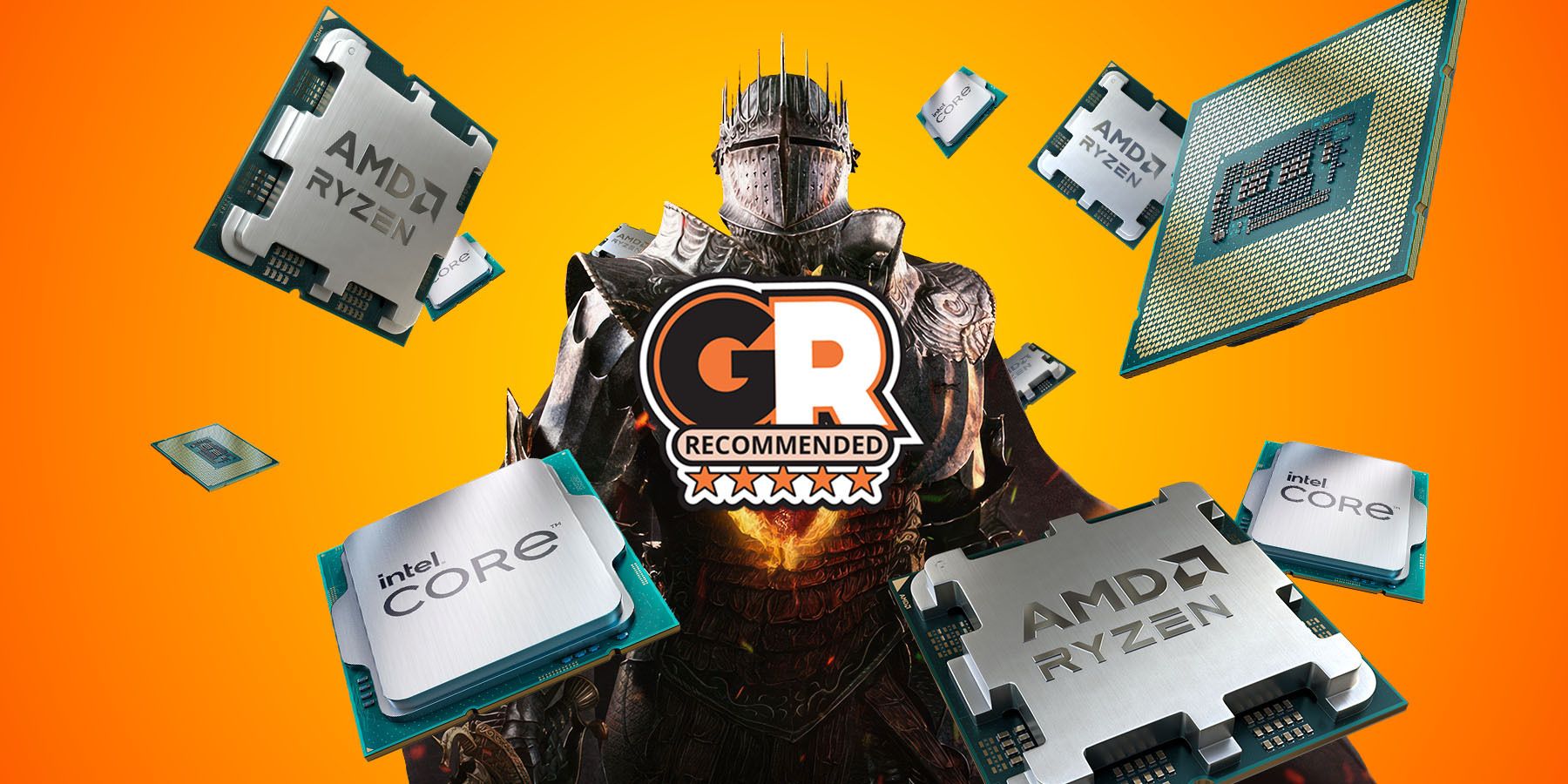
The Best CPUs You Can Get To Play Dragon's Dogma 2
With a myriad of CPU options to choose from, here’s a guide to finding the best CPUs to play Capcom’s new RPG, Dragon's Dogma 2.
FAQ
Q: Why is single-core performance so important for gaming?
Single-core performance is a key metric to identify and determine expected gaming performance. Modern games, while large and capable of using multiple cores, still end up using 1 core or a limited number of threads significantly more than being able to distribute load effectively across larger multicore processors. This means that games are often bound to a CPU's single-core performance much more than multicore performance which results in many publications and reviewers putting much more stock in it than multicore performance for gaming.
Q: Do I need a better cooler for my CPU?
Most modern CPUs with a cooler tend to be locked to a certain frequency range and the cooler provided is adequate for their thermal needs. Unlocked processors tend to be capable of higher frequencies and can often throttle performance if you bundle them with inadequate cooling. Looking up your CPU's TDP and maximum boost/turbo power draw and research specific to compatible cooling options should help you pick the right options for your CPU if needed.


